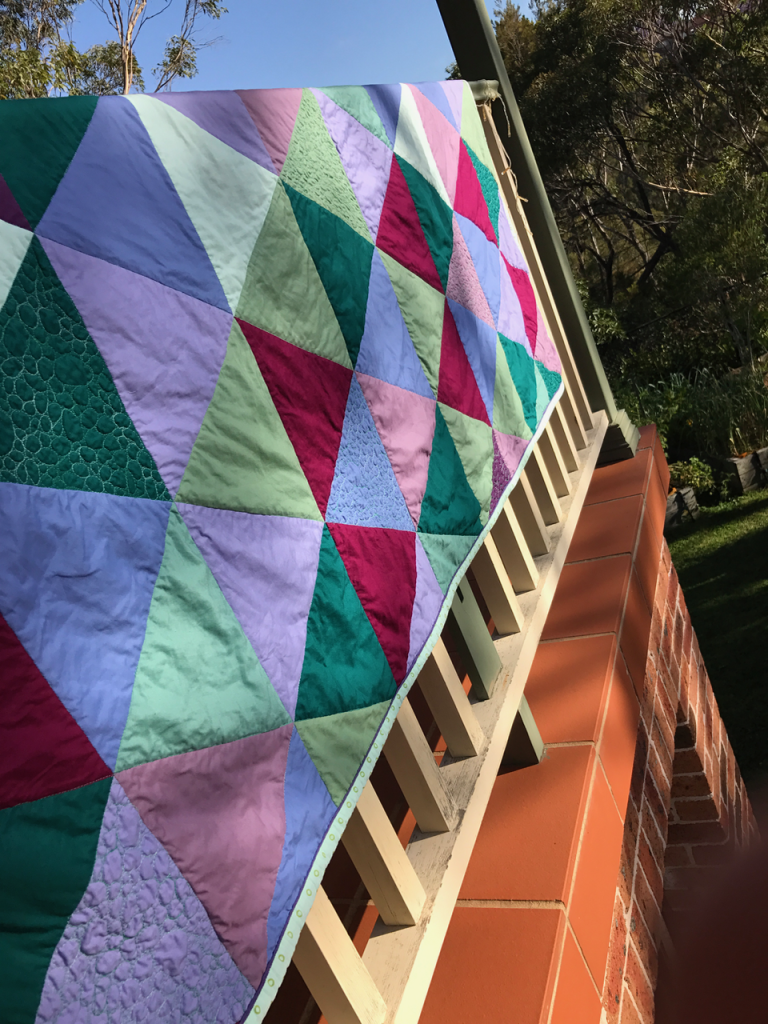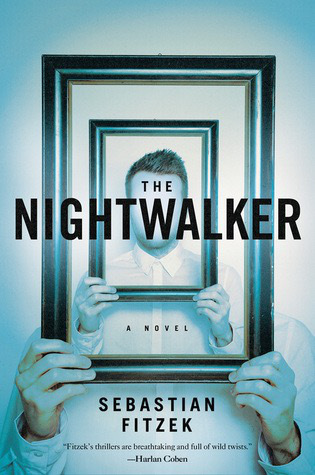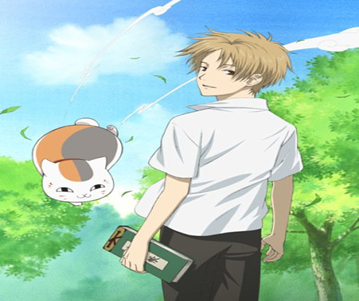
Sometimes, there is a work that just pierced your soul, leaving deep cuts all over the place.
(this is my general impression/review of the first five anime seasons of Natsume Yuujinchou/Natsume’s Book of Friends, as well as a bit of Yuki Midorikawa’s original manga)
Spirit creature (youkai/ayakashi) is a kind of popular theme in animango and Japanese narrative works in general. Before and after Natsume Yujinchou, I have read/watched a bunch of media where these folks play a big part, whether it’s presented as horror, slice of life, comedy, or even a blockbuster franchise for kids. However, Natsume is the one work that I feel most effectively utilized this significant aspect of Japanese folklore. It’s also a triumphant example of a narrative model that anime/manga does better than arguably any other media, where supernatural element is mostly used as vehicle to explore human condition and other such existential themes.
The crux of the narrative is right there on the title: high school protagonist Takashi Natsume inherited two things from his enigmatic grandmother Reiko, the ability to see spirits and the yuujinchou (lit. Book of Friends) that Reiko used to collect the names of the spirits she encountered in her teenage years. Deciding to return said names to their owners (thus, unbounding them) Natsume enlisted the assistance of a powerful youkai named Madara—affectionally called Nyanko-sensei in its customary buta-neko maneki-neko form. From there, it’s a journey of self-discovery as Natsume learns to come to terms with the ability that had caused him so much pain and misery.
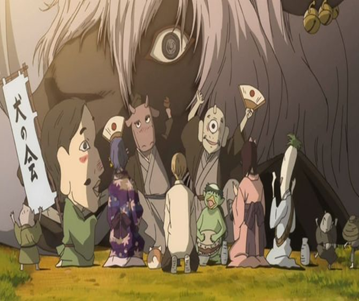
“Through his interaction with delightful, generous, sly, and terrifying kinds of youkai, Natsume is becoming aware of the reality that he has to face. He had wanted to set aside his feelings in order to become strong, but then he learned that it’s okay to feel happy and content, as well as to feel angry and concerned.” (Midorikawa-sensei)
There’s a signature bittersweet element in the works of Midorikawa, which makes a perfect fit for stories about relationship between human and spirits. It’s her outstanding short story Forest of the Fireflies that eventually led me to Natsume; both works sharing the sense of powerful longing, as well as finding solace from something that’s not meant to be. In Natsume, she draws a lot of mileage from the youkai’s different perception of time, by virtue of them having much longer lifespan and stronger memory than human.
Natsume Yuujinchou is something that I won’t recommend if you’re deathly allergic to a ‘slow’ and ‘episodic’ show. And yet, its emotional depth and various shades of character interaction transcend the deceptive limitations of its ‘youkai of the week’ format. The development in the series is subtle, almost imperceptible even, but it’s there and awfully rewarding once you get deep enough into this world and its endearing cast. Isolation and solitude are the show’s recurring themes, but it’s also about Natsume’s evolution toward self-acceptance, grateful resignation, and willingness to embrace those who care about him.
Likewise, it’s a treat to see the growth in Natsume’s relationship with various characters, whether it’s Nyanko-sensei (more on this awesome guy later), the various one-off youkai that he meets, the exceptionally tenderhearted couple who has become his guardians, and his circle of school friends that he slowly learn to trust over time. The narrative starts with him being in a good place already, but the many interspersed flashbacks give the audience a good idea on what kind of life he’s leading prior to that—and it’s not a pretty one. Sweet moments tend to be even more impactful when it’s preceded by bitterness and hardship, and therefore it makes for a gratifying experience to see Natsume adapts to the newfound warmth and kindness around him, because he sure as hell deserves it.
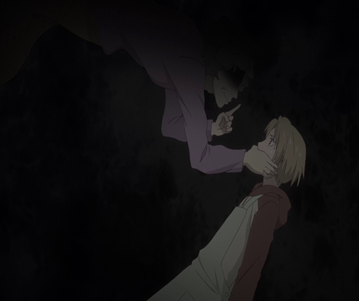
While it’s not inaccurate to describe Natsume as ‘relaxing’ and/or ‘healing’, these are terms that don’t entirely cover the whole breadth of the series and what it’s capable of. Its primary tone and mode of operation might be a gentle slice-of-life, but there is a significant dash of supernatural horror as well. We’re dealing with spirits after all, and a bunch of youkai that Natsume encounters are nasty brutes and tricksters who can’t wait to get their claws on the powerful yuujinchou. Hence, we get many genuinely creepy moments and tense chase scenes, where the audience legitimately fear for Natsume (and trust me on this: once you watched enough of the show, you’d care a lot for the boy’s well-being).
There is also comedy, and Nyanko-sensei is easily the MVP in this department. The sharp-tongued and gluttonous youkai is already a great comedic character thanks to his design and mannerism, and he also makes a terrific foil to Natsume. Buoyed by consistently wonderful performance from veteran voice actor Kazuhiko Inoue, Nyanko-sensei is always there to provide necessary brevity as well as the bedrock of presence that Natsume needs. In fact, the interaction between the two is often what I’m looking forward the most in every episode.
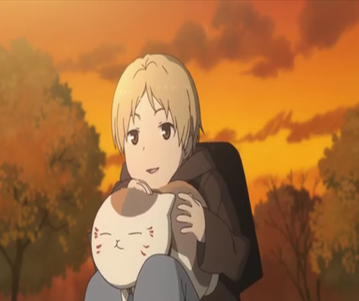
The show is produced by Brain’s Base and directed by Takahiro Omori (who also directed the oddball superhero show Samurai Flamenco and the adaptation of Midorikawa’s Forest of the Fireflies) for its first four seasons, with Shuka (new studio founded by former Brain’s Base staff) and Kotomi Deai taking over for fifth season onward. The direction and production value remain steady throughout, and while there isn’t much flair/visual showmanship, the general aesthetic is more than serviceable enough. Midorikawa’s youkai design translates very well to the screen, and the cinematography is versatile enough to depict calming rural landscape, sinister youkai presence, and Nyanko-sensei’s comedic mugging equally well.
A key part of the anime is Makoto Yoshimori’s soundtrack, which boosts the atmosphere through its elegant instrumental beauty. The majority of tunes evoke the sense of a warm and peaceful summer days, diversified by sudden tempo change and discordant noise in its tense and scary scenes. The same audio cues are mostly used over the five seasons, but they remain as potent as ever. I also like the collection of uplifting opening/closing songs, especially the contemplative EDs, which often make for a perfect fade out at the end of a given episode.
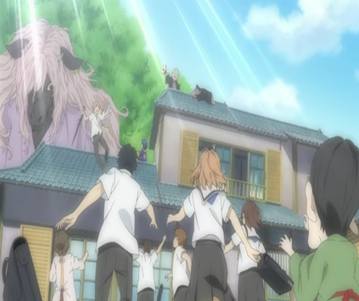
Having read the manga (mostly volume 10 onward), I can say that the anime is a very worthy adaptation that elevated the source material in some regards. The narrative composition, courtesy of accomplished screenwriter Sadayuki Murai, re-arranged and fleshed out the original chapters to great effect, while still being largely faithful to the original’s spirit and sense of progression.
Overall, while the show is one of the best adaptations for an ongoing manga, I’d still recommend the manga to fans of the show for Midorikawa’s distinct art style (she has a very delicate line work that fits her ephemeral subject matter very well) and the copious amount of author’s notes that provide a lot of insight on the series.
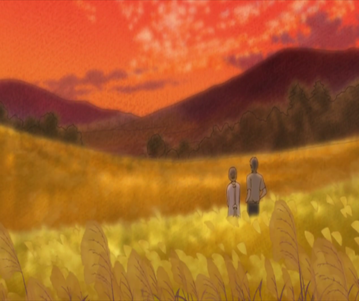
It is obvious that Natsume Yuujinchou is made by someone with a very gentle soul, and reading Midorikawa’s thoughts only confirmed that. It isn’t ignorant of pain, danger, and the more unsavory things in life, but through the small acts of kindness all over the series, it becomes a tremendously uplifting creation and a work of art that I believe has enough power to change someone’s outlook on life.
For me, it’s a reminder that every relationship, interaction, and encounter matters.
Whether it’s a loved one that you will lose someday…
Someone that you believe has forgotten you…
Someone who give you that sense of belonging…
Someone you hate…
Someone you don’t know who helped you on the road…
Every single one of them, no matter how short or trivial, matters. We’re all going to expire one day, but there is always meaning to be discovered within this ephemeral existence.
Advertisements Bagikan ini: